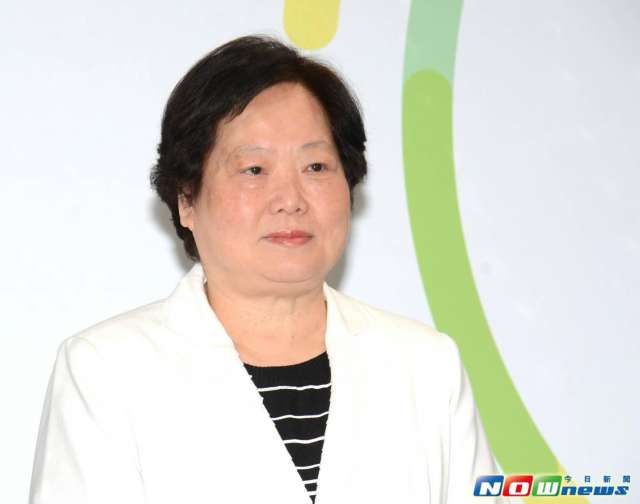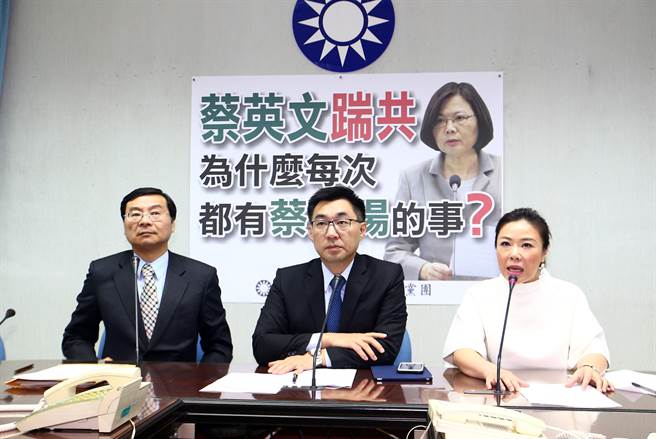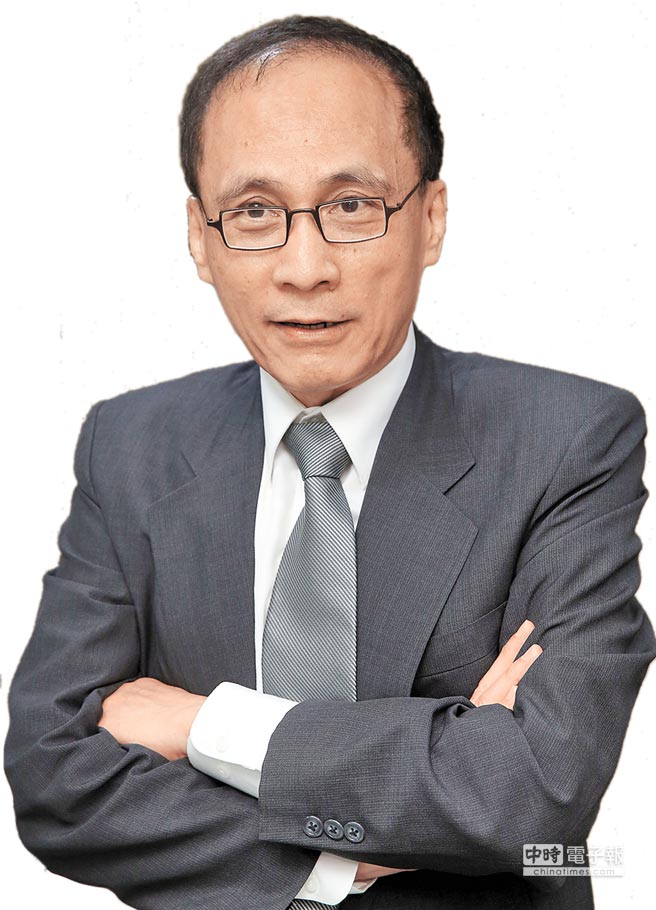by Brian Hioe
語言:
English
Photo Credit: Presidential Office
GIVEN THE prominence of entrenched political and business interests in Taiwanese politics and that this is well-known by the public, it is not surprising that the upcoming Tsai Ing-Wen administration is attempting to make a show of differing from political norms. We see this in current efforts to show that the Tsai administration will go beyond party lines in its political appointments and will not allow business interests to unduly influence it.
Political corruption in Taiwan is often associated with the KMT, as we see in the coinage of the phrase “Black Gold” to refer to crony capitalist collusion by KMT politicians with business interests and even organized crime. But the previous DPP administration of Chen Shui-Bian at times saw DPP politicians stepping into roles previously filled by KMT politicians, with DPP politicians not necessarily proving less corrupt than KMT politicians. Such would be the perils of political power.
Complicating matters would be Chen Shui-Bian’s arrest after the end of his second term on charges of corruption and embezzlement. Though many pan-Green political actors have pointed to this as a possible frame-up by the KMT or an attempt at political retribution by the KMT, on the basis of his administration, we might note that Taiwanese society largely was willing to accept the veracity of such charges at that point in time on the basis of what they knew about Chen’s administration.
Tsai Ing-Wen’s rise to political power has been in part a product of a clean political image, free of corruption. Tsai has sought to preserve this image. Tsai needs to avoid the pitfalls fallen into by the previous Chen administration in order to avoid suffering similar public backlash against the DPP and the lingering perception that the DPP in power would not differ so much from the KMT in behavior where political corruption is concerned.
Yet Tsai already faces criticism. Recent Cabinet nomination of Lin Mei-chu by incoming Executive Yuan premier Lin Chuan have sparked some controversy.The appointment of Lin Mei-chu, who is Tsai Ing-Wen’s cousin, as minister without portfolio has raised controversy because of allegations of nepotism against Tsai. Lin Chuan has denied that the appointment of Lin Mei-chu was made on the basis of family connections, but rather on Lin’s personal merit, and also stressed that Lin will be in the Executive Yuan, not the Presidential Office, hence there will not be any conflict of interest. This has not prevented criticism, however.
 Lin Mei-chu. Photo credit: NowNews
Lin Mei-chu. Photo credit: NowNews
Likewise, Tsai Ing-Wen’s brother Tsai Ying-Yang, was named in the Panama Papers leaks as an owner of an offshore company in Panama. Tsai Ying-Yang’s lawyers have denied any illegality to the fact, seeing as ownership of an offshore company is not necessarily illegal.
But Tsai Ing-Wen has in the past been questioned about Tsai Ying-Yang’s business connections as a board member of Fu-tai Investment Co, a stockholder for OBI Pharma Inc—which Tsai Ing-Wen also appears to have connections to. Tsai has claimed that she will resolve any possible conflicts of interest between her or family members before her inauguration. The KMT has at times leveraged on this to attack Tsai.
Accusations of nepotism against Tsai will certainly be something Tsai needs to overcome in order to continue to present an image of not being tainted by family connections and avoid the perception of using her political connections to benefit members of her family. However, to this extent, Tsai also seeks to present the image of rising above partisan politics, Tsai walks a fine line on this issue, too.
 KMT press conference attacking Tsai on the basis of Tsai Ying-Yang’s finances. Photo credit: 陳信翰/China Times
KMT press conference attacking Tsai on the basis of Tsai Ying-Yang’s finances. Photo credit: 陳信翰/China Times
Namely, Tsai needs also to avoid the image of DPP monopolization of political power, now that the DPP controls both the legislature and the presidency for the first time in Taiwanese history. Although to be sure, this is the first time a non-KMT party has ever controlled the legislature, much less both the legislature and the presidency, hackles have been raised about the DPP monopolizing political power in a manner not so different from the KMT.
Tsai has, for example, stressed that vice president Chen Chien-jen and Executive Yuan premier Lin Chuan both are not DPP members. During the past election season, for much the same aims, Tsai made attempts at outreach to third parties as the NPP or SDP and aided them in their political campaigning, despite that they could possibly be critics and political enemies of the DPP in the future.
As a show of going beyond old pan-Blue versus pan-Green partisan politics, Tsai has also indicated a willingness to work with elements of the pan-Blue political camp. It seems likely that Tsai will probably make efforts at outreach to the “Taiwanese” faction of the KMT, which has chafed because of slights against it by the KMT establishment of the “Mainlander” faction. Though such reports were later denied, it was previously rumored that Wang Jinpyng of the KMT would be taking a post as head of the Straits Exchange Foundation for conducting semi-official governmental relations with China, for example.
 Lin Chuan. Photo credit: China Times
Lin Chuan. Photo credit: China Times
It is also possible that Tsai will reach out to deeper Blue elements of the pan-Blue camp, but this will be provocative given that Tsai was elected in no small part as a result of dissatisfaction against the KMT becoming increasingly hardline and drifting more and more directly towards unification politics in recent years. In this, Tsai faces the challenge of navigating the public demand for addressing the KMT party asset issue of taking care of the ill-gotten assets of the KMT dating back to the authoritarian period, while at the same time avoiding the image of seeking political retribution against the KMT—in the manner that the arrest of Chen Shui-Bian after his term ended is seen as political retribution of the KMT against the DPP.
Tsai’s broader dilemma, then, would be how to navigate breaking with what is perceived as the “old politics”—perceived as dividing along partisan lines and corrupt in nature—without alienating the supporters who put her into power and their demands. And it is a further question as to whether Tsai would herself fall into the old politics regarding her family ties with business interests and her connection with entrenched political actors.


 Lin Mei-chu. Photo credit: NowNews
Lin Mei-chu. Photo credit: NowNews KMT press conference attacking Tsai on the basis of Tsai Ying-Yang’s finances. Photo credit: 陳信翰/China Times
KMT press conference attacking Tsai on the basis of Tsai Ying-Yang’s finances. Photo credit: 陳信翰/China Times Lin Chuan. Photo credit: China Times
Lin Chuan. Photo credit: China Times